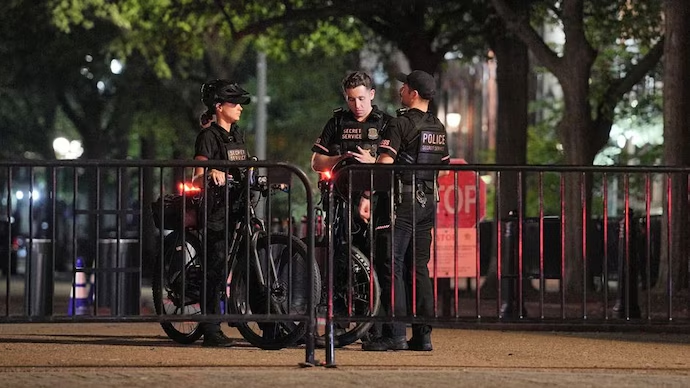The United States has released a Worldwide Travel Alert in light of airstrikes on Iranian nuclear centers. The action increased international tensions and has raised alarm regarding the security of American citizens outside the country. The alert was issued by the US Department of State on June 22, 2025, advising Americans to use additional caution while traveling overseas.
This comes after a significant military campaign in which US airstrikes hit Iranian nuclear targets, including facilities in Isfahan, Fordow, and Natanz on June 21. The attacks were launched due to increasing fears over the nuclear activities of Iran and tensions between Iran and Israel.
Travel Alert for Americans Across the Globe
US Department of State recommended that the Israel-Iran conflict already resulted in airspace disruptions and flight diversion all over the Middle East. The advisory threatened possible demonstrations against American interests and citizens, particularly in unstable areas.
Also read: New York State Of Emergency: 32 Counties Warned Of Severe Weather Conditions
The warning cautioned:
“The Department of State recommends U.S. citizens everywhere to use extra caution. Read our Travel Advisory, country information, and any recent security messages carefully when making travel plans.”
This general worldwide advisory is not often issued and indicates the gravity of the situation.
Airlines Suspend or Detour Flights
Following the attacks, a number of foreign airlines suspended flights or changed routes to steer clear of dangerous airspace. They include:
- British Airways
- United Airlines
- Singapore Airlines
- Delta Air Lines
- Lufthansa
- Air France-KLM
- Japan Airlines
- Emirates
- Air Canada
- Swiss
The disruption has affected flight schedules throughout Europe, Asia, and the Middle East, with many planes skirting the Gulf region and surrounding airspace. The instability should continue until tensions subside or diplomatic guarantees are given.
Tensions Rise at United Nations
The military attack necessitated an emergency UN Security Council session, convened by Iran. During the meeting, acting US Ambassador Dorothy Shear read out a stern message from US President Donald Trump, which read:
“Any Iranian attack – direct or indirect – against Americans or American bases will be met with devastating retaliation.”
Shear insisted that the attack was in defense of American allies and interests, mainly Israel, and that it was a bid to stop Iran from getting a nuclear weapon.
The threat was reiterated in a candid post from Trump on Truth Social when he posted:
“Any Retaliation By Iran Against The United States Of America Will Be Met With Force Far Greater Than What Was Witnessed Tonight.”
Iran’s Response and Threats
Iran’s Envoy Amir Saeid Iravani informed the UN that Tehran would not be pressured into retaliation. He added that the “timing, nature, and scale” of the Iranian response would be left to the country’s military.
While Iran has not yet made a full counterattack, its military is currently at high alert and officials have indicated that they are preparing for a strategic and measured response.
High Alert in Major US Cities
Major cities in the US have increased security measures as a reaction to possible domestic unrest or retaliation. Major cities like:
- New York
- Washington D.C.
- Los Angeles
have sent in extra security forces into vulnerable locations. These include religious, cultural, and diplomatic locations, as well as transit points and public places.
Local officials have released safety bulletins and are coordinating directly with federal agencies to track any suspicious activity or threats related to international tensions.
US Strategic Position
Military experts opine that the airstrikes against Iranian nuclear targets were not merely symbolic but strategically designed to undermine Iran’s nuclear capabilities. Reports indicate extensive damage to the Isfahan Nuclear Technology Center, as indicated in satellite photos.
Meanwhile, US B-2 stealth bombers which took part in the operation, code-named “Operation Midnight Hammer”, returned to home base after ending a 36-hour mission, showing the long-range capability and preparedness of the US military.
Global Reactions and Risks
Though the US and its allies support the actions taken, other major powers in the world, such as Russia and China, have called for de-escalation. The possibility of wider conflict in the Middle East continues to be a source of concern, particularly if Iran decides to strike back or try to hinder global shipping in the Strait of Hormuz, which is an important global oil route.
The US has already called on China to intervene diplomatically, cautioning Iran against taking that action, which would unleash a worldwide energy crisis.
Also read: Indianapolis Shooting at Monument Circle: 3 Injured, Public Safety in Question
Conclusion
As US, Iranian, and Israeli tensions rise, the world holds its breath. The Worldwide Caution advisory from the US is a testament to the unpredictable and volatile nature of geopolitics today. With flight disruptions, Worldwide travel alert, and the possibility of retaliation, American citizens are being advised to stay vigilant, informed, and cautious in the coming days.
Whatever follows will determine not just regional stability but might also frame international security and diplomatic relations for decades to come.








